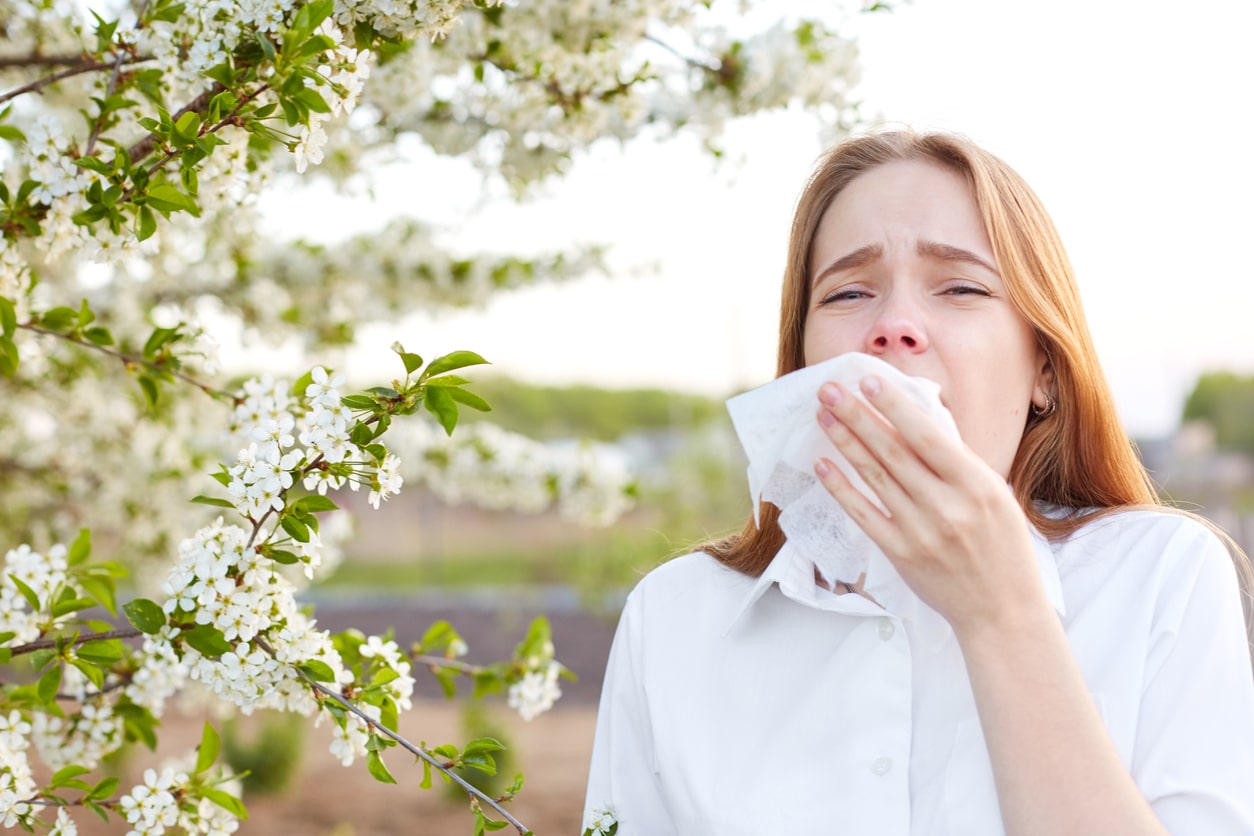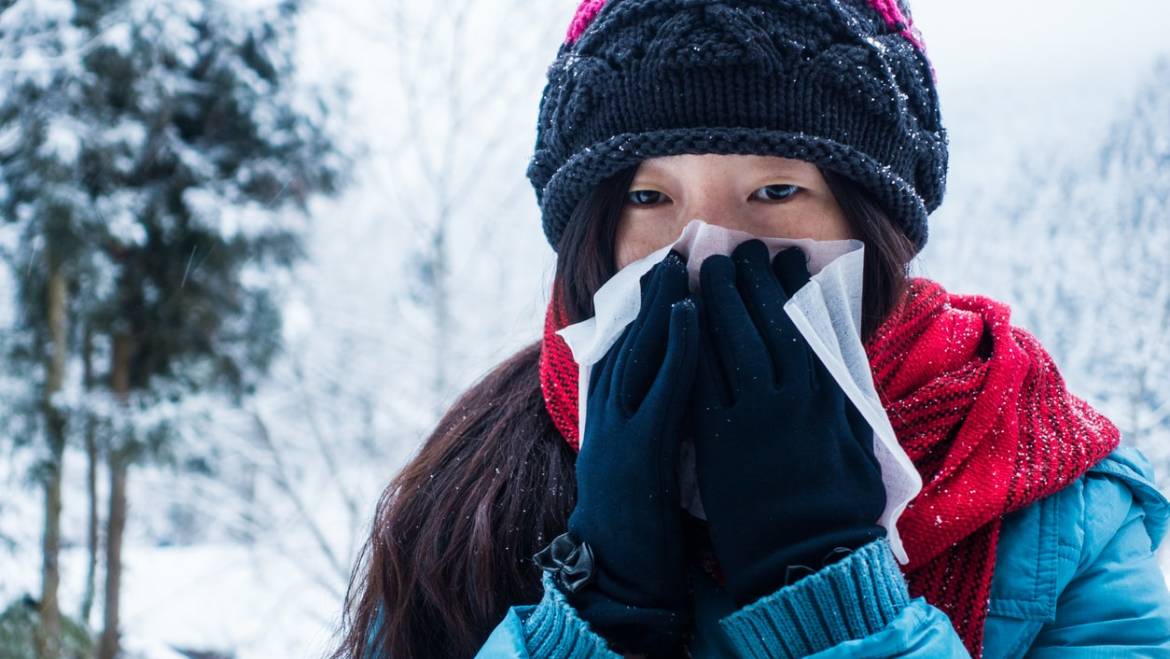Winter allergies can be frustrating; once the winter months hit, you may have thought there would be relief from certain allergic symptoms. Unfortunately, sneezing, watery eyes, and coughing can be disturbing enough. This page will help you to identify the common causes of winter allergies and when to turn to an allergist for medical help.
What are winter allergies?
If you have been sneezing for more than a week and it doesn’t seem to be going away, then the chances are it probably is not a common cold. The common cold lasts for a few days and sometimes no more than two weeks. If your cold stays for long, it looks like you are suffering from a winter allergy for which a range of causes become more prevalent during the winter season. To make sure whether it is an allergy or common cold that is troubling you, look at this page and learn the difference between allergy symptoms and signs.

What causes winter allergies?
If you have this question running in your mind, please check below:
- Animals – Your fluffy pet may not cause an allergic reaction during other seasons, but having a closed house in winter or turning on the heat may cause animal dander to circulate in the air and contribute to more airborne allergic reactions. Animal dander in the air can trigger red and watery eyes. The condition needs to be discussed with an optometrist. Keep your pet groomed and carpets and bedding clean to avoid the condition.
- Mold – Molds are mainly found in damp areas such as bathrooms and basements. A home with a mold problem can be extremely dangerous as it can lead to a respiratory issue like asthma, which can be life-threatening.
- Dust mites – These are the single biggest cause of allergies today and live almost everywhere. These organisms are microscopic and love similar conditions to mold, i.e. warm and damp. These indoor allergens fester in bedding, dust, carpet, and our bodies. These tiny organisms are frequently the culprit of allergy issues since they leave their waste behind. To avoid these allergens, frequently wash your bedding, including pillows, and dry it at high temperatures. Carpets should be cleaned thoroughly to ensure the dust mites are eliminated. If the carpet’s surface becomes hard, retire or avoid using it. Regular dusting is necessary to prevent the circulating of tiny mites in the air. One can also bring a dehumidifier home to reduce the humidity to 50%.
- Winter Pollen – During the winter, winter-blooming plants and trees can worsen pollen allergies. Among all plants, the Christmas tree is a frequent source of misery for people with allergic reactions. To manage pollen allergies, try to keep blooming plants out of the house and consider artificial greenery inside the house to manage pollen issues.
What are the symptoms?
Winter allergy symptoms and signs include coughing, itchy eyes, congestion, and sneezing. Some allergy sufferers may also experience headaches and fatigue. Caution should be taken by allergy sufferers who also have asthma, as their asthma symptoms can worsen in the winter season. The cold wind trigger symptoms that include coughing, shortness of breath, and wheezing. Since the common cold is a common issue in the winter season, it can be tough to determine if symptoms such as sneezing, coughing, and runny nose are a cold or allergy. According to health experts, treatment of a cold usually runs for about ten days. If you are still experiencing the symptoms, you can blame winter allergies for your condition.
Treatment options for winter allergies
Avoidance of allergens that trigger symptoms is the best medicine for winter allergies. Conventional drugs are also available to treat winter allergies that address the root cause of the problem. Allergy can greatly impact your life, and it can affect you and your family in other important ways, such as poor performance at the office or school due to inability to concentrate, time lost from work etc. It is sometimes hard to identify if you are witnessing an allergic reaction or a cold. Recognizing patterns of your allergy is an essential step in taking control of them. If you are among the millions of people suffering from a winter allergic reaction, you may suffer from congestion, runny nose, sneezing, and other troublesome symptoms. You can try these simple strategies to keep allergic reactions at bay.
- Avoid the causes of the allergic reaction
- Allergy medications are available to reduce allergic conjunctivitis symptoms, including eye drops. One can take allergy tablets, and nose sprays for other allergic reactions to get relief.
- Immunotherapy is another option for allergy sufferers, including allergy injections and dispersible tablets that must be kept under the tongue. Immunotherapy is specially designed to reduce allergy symptoms and signs.
Rinsing your nasal passages with saline preparation is an effective way to relieve nasal congestion and associated symptoms. Rinsing flushes out allergens-filled mucus from your nose. You can also use a neti pot for nasal rinsing and quickly get this from a local drug store. Use sterile or filtered water to make up the saline solution.
admin
Latest posts by admin (see all)
- What is Triluma Cream? Uses, Benefits, and How It Works for Skin - December 26, 2024
- What Causes Dark Spots? Understanding the Science of Hyperpigmentation and How Skin Lightening Products Help - December 26, 2024
- Tretinoin Gel vs. Cream: Which Formulation is Right for Your Skin? - December 20, 2024



